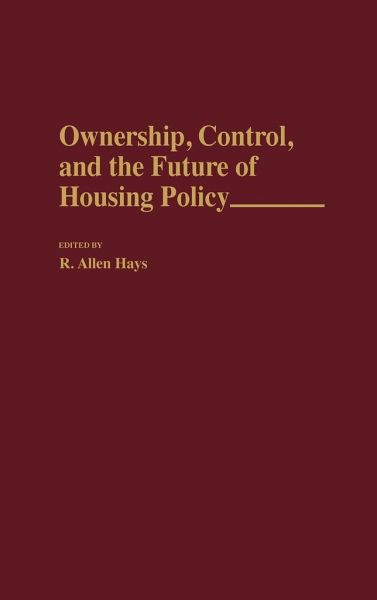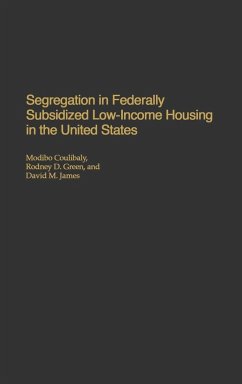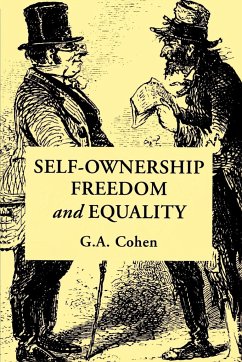
Ownership, Control, and the Future of Housing Policy
Versandkostenfrei!
Versandfertig in 1-2 Wochen
88,99 €
inkl. MwSt.

PAYBACK Punkte
44 °P sammeln!
This comparative study is the first to center on the key issues of homeownership and control today in a number of industrialized countries. Experts from Canada, Great Britain, Russia, and the United States draw a cross-national and interdisciplinary, informed picture of basic issues and values, current trends, and different policy approaches that have been tested in recent years. This overview of various national policies and programs is intended for students and scholars, policymakers and public administrators dealing with fundamental problems in homeownership and control. Ownership and contr...
This comparative study is the first to center on the key issues of homeownership and control today in a number of industrialized countries. Experts from Canada, Great Britain, Russia, and the United States draw a cross-national and interdisciplinary, informed picture of basic issues and values, current trends, and different policy approaches that have been tested in recent years. This overview of various national policies and programs is intended for students and scholars, policymakers and public administrators dealing with fundamental problems in homeownership and control. Ownership and control has long been a central theme in the heated public debates in different countries over housing policy. How are notions about ownership and control tied to culture? What are some of the basic values about homeownership in western societies? What place has homeownership played in the life cycles of black and white families in the United States? What limitations to privatization exist in housing reform in Russia now? Who benefits or loses from public housing sales in Britain? How are multi-family public housing projects of the 1960s in the United States being converted to community-corporation control? What different kinds of tenant attitudes exist toward tenant management in two U.S. public housing developments? What type of role do nonprofit housing cooperatives in Canada play? These are only some of the questions that the ten chapters set out to answer. Reference lists accompany each of the chapters, adding to the usefulness of this public policy study for text purposes.












